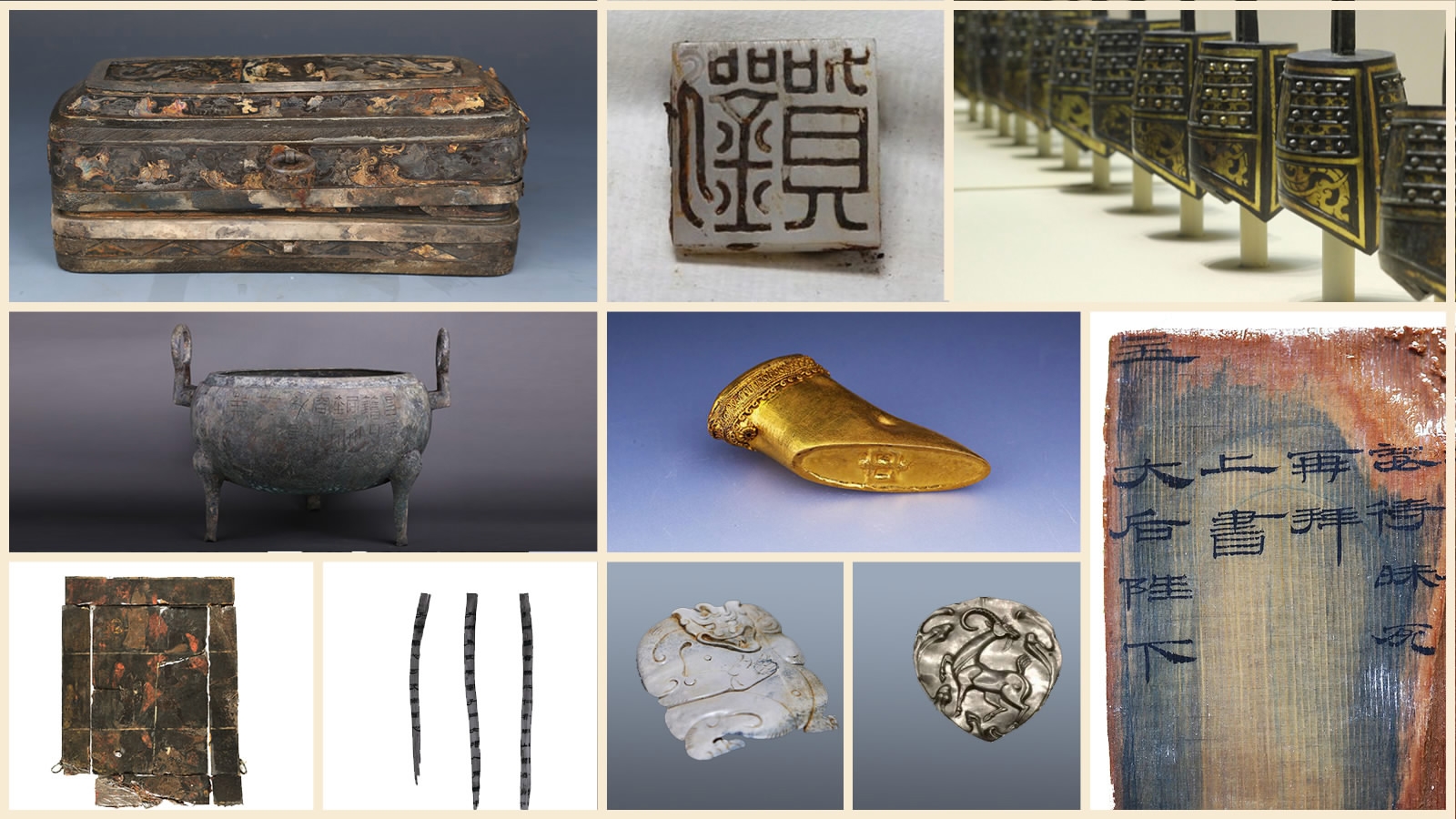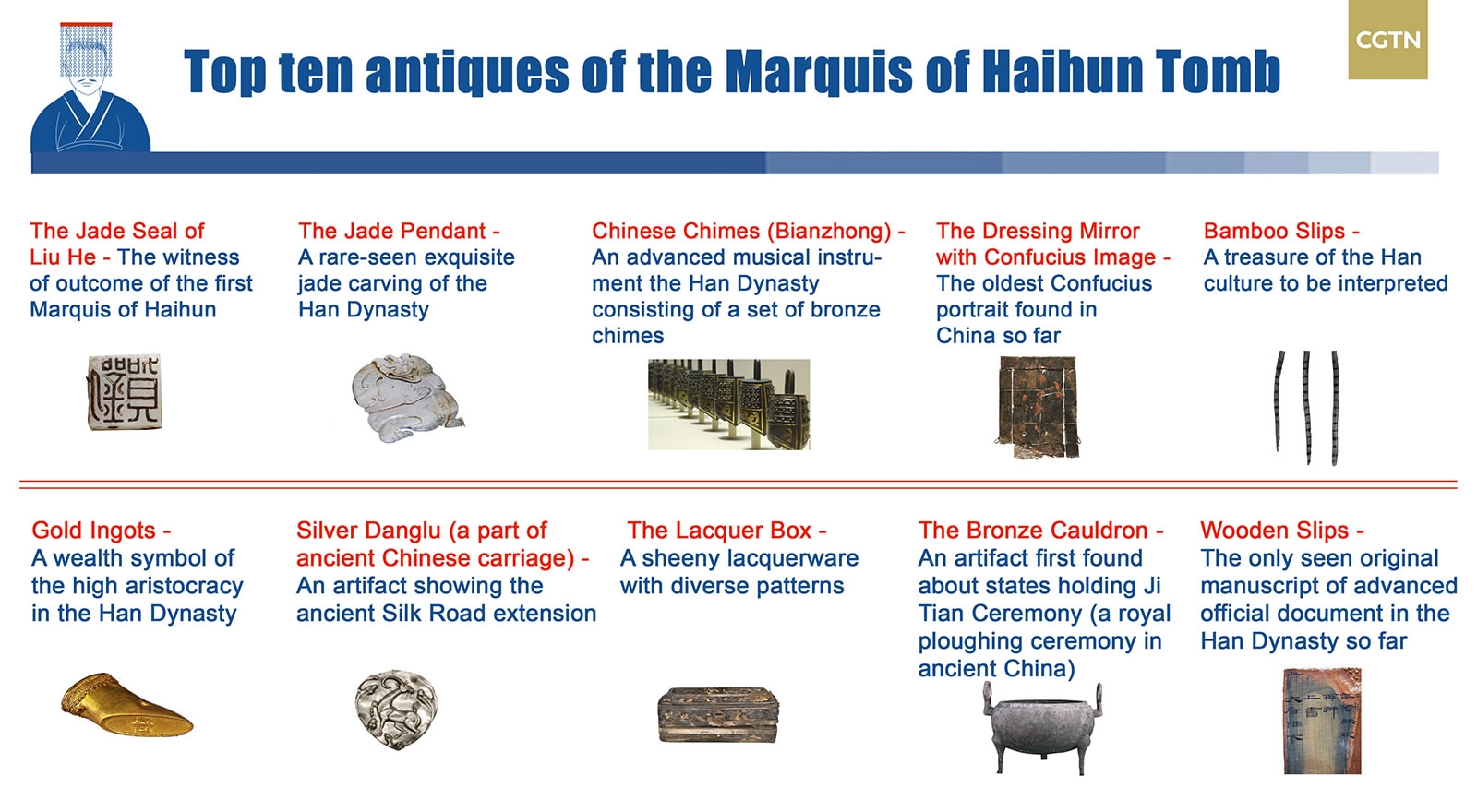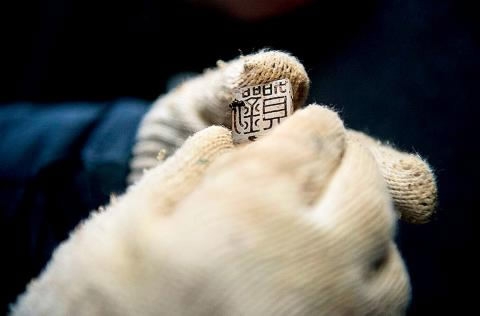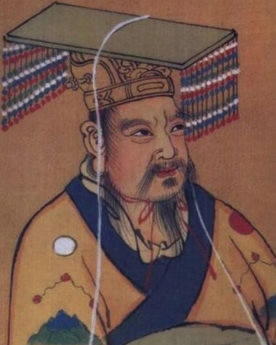
Culture
22:37, 13-Nov-2017
Top 10 antiques of Han marquis’ tomb unveiled
By Zhang Ruijun

Top 10 antiques unearthed from the Marquis of Haihun’s Tomb in the Western Han Dynasty (206 B.C.-AD24) in current Nanchang, Jiangxi Province were unveiled last Thursday after archaeologists’ selection and public votes, with the jade seal of the marquis, Chinese chimes and other eight exquisite artifacts into the list.
Yang Jun, researcher with the Jiangxi Provincial Institute of Cultural Relics and head of the archaeological excavation team of the cultural relics, announced top 10 antiques at the last Thursday’s news conference: the jade seal of Liu He, the jade pendant, Chinese Chimes, the dressing mirror with Confucius image, gold ingots, the silver Danglu, the lacquer box, the bronze cauldron as well as wooden and bamboo slips.

Archaeologists’ selection and public votes
According to Peng Yin, curator of the Nanchang Han-Dynasty Haihunhou Historic Site Museum, at the start of the selection, the archaeological experts chose 42 antiques from over 10,000 ones. These selected artifacts consisted of five categories included the well-known gold hoof-shaped ingots.
Then the Museum launched a 15-day voting in online and offline actions simultaneously. The voted top 20 antiques were appraised by experts from National Museum of China and Jiangxi Provincial Institute of Cultural Relics and Archaeology and eventually authorized as top 10 antiques of the Marquis’ cultural relics.
The tomb excavation and its owner
In March 2011, Yang Jun was told an ancient tomb on Mount Dun near Xijian County (the current Xinjian District of Nanchang City) had been raided. Then the Jiangxi Provincial Institute of Cultural Relics conducted an emergency excavation of the unexplored cultural relics.
With more precious and crucial artifacts being unearthed from the tomb complex the State Administration of Cultural Heritage elevated the tomb’s excavation as “national-level archaeological project” in January 2015.

A jade seal inscribed the name “Liu He” / Telegraph Photo
A jade seal inscribed the name “Liu He” / Telegraph Photo
In the further excavation, researchers found a jade seal bearing the name “Liu He” in the main coffin, which proved the tomb owner’s identity.
Liu He (94 or 93-59 B.C.) had an extraordinary life, being the only person in Chinese history to have served as a marquis, state king and emperor.

Liu He (94 or 93-59 B.C.), the only person in Chinese history to have served as a marquis, state king and emperor / Pinterest Photo
Liu He (94 or 93-59 B.C.), the only person in Chinese history to have served as a marquis, state king and emperor / Pinterest Photo
He was originally the King of Changyi, then became the ninth emperor of the Western Han Dynasty with just 27-day-reign and was later banished to the south and given the title Marquis of Haihun.
The Marquis of Haihun Cultural Relics, located in Nanchang Xinjian District, are the largest, best preserved and most complete pattern of the typical state capital in the Han Dynasty currently found in China.
(Top image and infographic by Li Yueyun)
1251km

SITEMAP
Copyright © 2018 CGTN. Beijing ICP prepared NO.16065310-3
Copyright © 2018 CGTN. Beijing ICP prepared NO.16065310-3